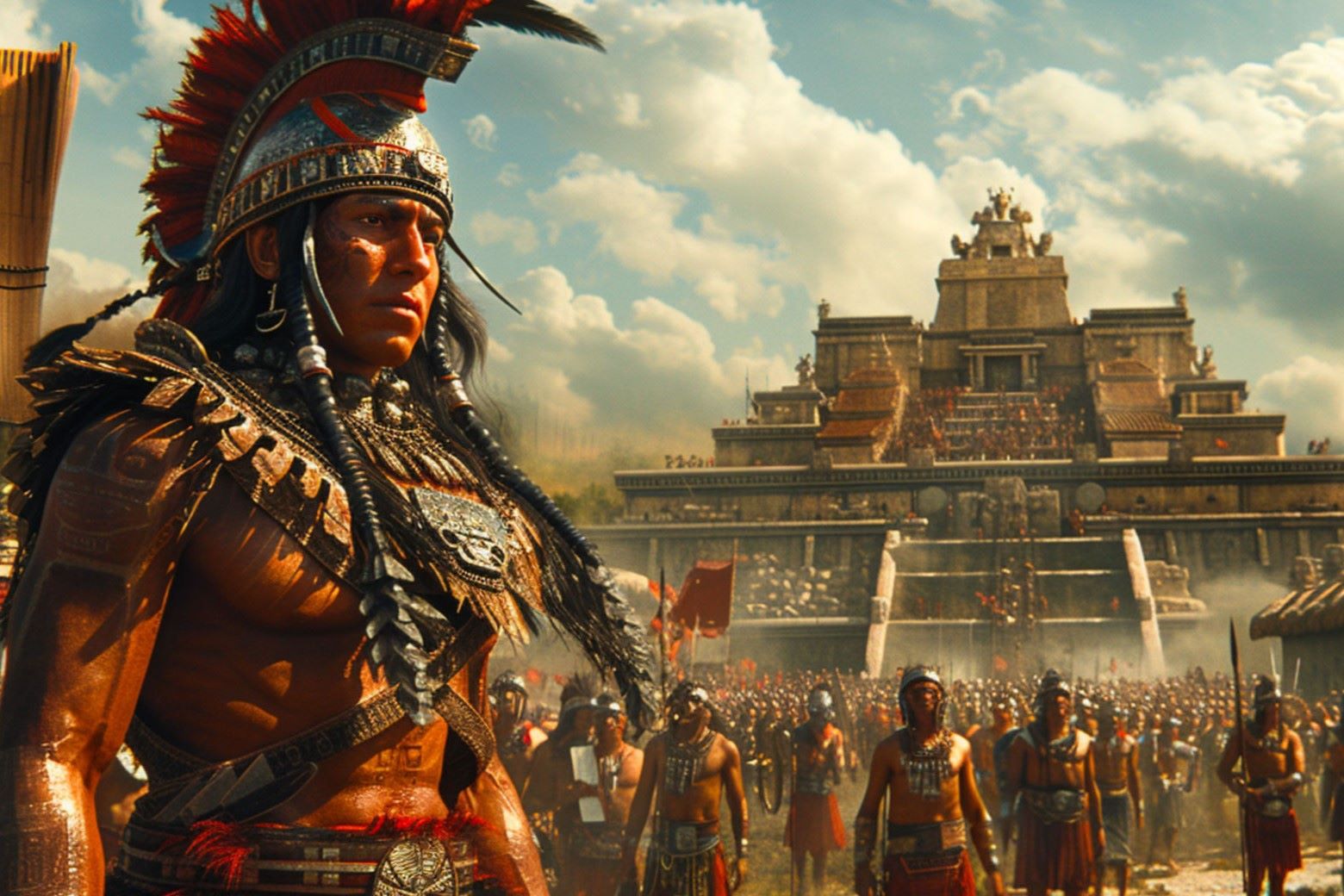10 Astonishing Secrets About The Aztecs You Never Knew

The Aztecs were an ancient civilization that thrived in what is now Mexico. Their culture, achievements, and way of life continue to fascinate people today. Did you know they had a complex system of writing and math? Or that they built floating gardens called chinampas to grow food? The Aztecs also had a rich tradition of art and architecture, creating stunning temples and intricate sculptures. Their society was highly organized, with a strong emphasis on education and religion. From their unique calendar system to their impressive military strategies, the Aztecs left a lasting impact on history. Let's dive into some astonishing secrets about this incredible civilization.
The Aztec Empire's Rise to Power
The Aztecs, a powerful Mesoamerican civilization, left an indelible mark on history. Their rise to power and eventual dominance over central Mexico is a tale of ambition, strategy, and resilience. Here are some secrets about their empire that might surprise you.
Triple Alliance: The Aztec Empire wasn't a single entity but a coalition of three city-states: Tenochtitlan, Texcoco, and Tlacopan. This alliance allowed them to dominate the region.
Ingenious Agriculture: They developed chinampas, or floating gardens, to grow crops on the shallow lake beds in the Valley of Mexico. This innovation ensured a steady food supply.
Strategic Marriages: Aztec rulers often married daughters of other powerful leaders to secure alliances and expand their influence.
Aztec Society and Culture
The Aztecs had a rich and complex society, with distinct social classes, traditions, and beliefs. Their culture was vibrant and multifaceted, reflecting their deep connection to their gods and the natural world.
Education for All: Both boys and girls received education. Boys learned warfare and trades, while girls were taught domestic skills and religious practices.
Human Sacrifice: Contrary to popular belief, human sacrifice was not a daily occurrence but reserved for special religious ceremonies to appease their gods.
Codices: The Aztecs used pictographic writing in codices to record their history, religious practices, and daily life. These codices provide invaluable insights into their civilization.
Aztec Innovations and Achievements
The Aztecs were not just fierce warriors but also skilled engineers, architects, and astronomers. Their innovations and achievements continue to fascinate historians and archaeologists.
Tenochtitlan's Grandeur: Their capital city, Tenochtitlan, was an architectural marvel with grand temples, palaces, and a complex system of canals and causeways.
Calendar Systems: They used two calendars: a 365-day agricultural calendar and a 260-day ritual calendar. These calendars were crucial for planning agricultural activities and religious ceremonies.
Medicine: Aztec medicine was advanced for its time. They used a variety of herbs and plants to treat ailments and had a deep understanding of human anatomy.
The Fall of the Aztec Empire
The fall of the Aztec Empire was swift and dramatic, brought about by a combination of internal strife, European diseases, and the arrival of Spanish conquistadors.
- Hernán Cortés: The Spanish conquistador Hernán Cortés played a pivotal role in the fall of the Aztec Empire. His alliances with rival indigenous groups and the spread of smallpox decimated the Aztec population, leading to their eventual defeat.
The Aztecs' Lasting Impact
The Aztecs left a mark on history with their advanced civilization and rich culture. Their innovations in agriculture, architecture, and astronomy still amaze us today. The Aztec calendar, for example, shows their deep understanding of time and the cosmos. Their art and craftsmanship reveal a society that valued beauty and skill.
Despite their fall to the Spanish, the Aztecs' legacy lives on in modern Mexico. Many traditions and customs have roots in Aztec culture. Their influence is seen in language, food, and festivals.
Learning about the Aztecs helps us appreciate the complexity and ingenuity of ancient civilizations. It reminds us that history is full of surprises and hidden gems. The Aztecs' story is a testament to human creativity and resilience.

